IoT Chain
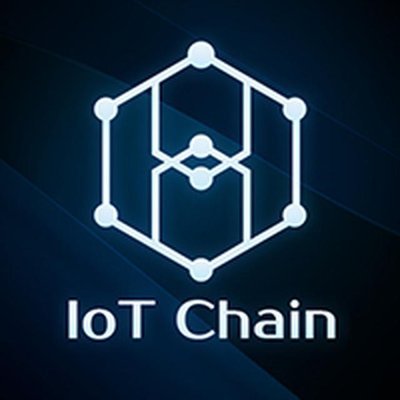
What is IoT Chain?
IoT Chain is a lite operating system based on the blockchain that is able to interact with the Internet of Things (IoT). This was created to help with the security issues with the IoT, enabling the interconnectivity of different devices, and deal with the extreme usage of IoT.
The Team
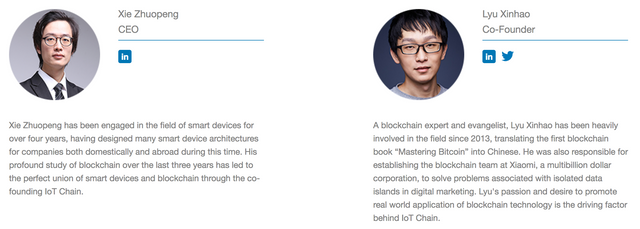
The IoT Chain team is a little bit smaller than a majority of projects that I have looked at, but quality of the team is typically more important than the quantity. For example, this is really apparent with Game.com and Enjin. Game.com has more than 100 team members, while Enjin has about 30, but Enjin's project and platform is far superior. That being said, I think they need to make sure they include the various team members on their homepage, and not just show the main four individuals. However, the IoT team is extremely experienced in the blockchain industry, but I think the biggest difficulty they will have is getting attention to their project on a global scale, especially considering this is primarily an Asian based organization. One of their partners is Block72, which is an organization who assists them in marketing. That is definitely a great sign for giving them more exposure on a global scale. They're also getting more attention on their project through their bounty program, which can be found here!
I'm going to focus in on three of their team members Xie Zhuopeng, Lyu Xinhao & Ding Ying.

Mr. Xie is one of the Co-Founders of IoT Chain, and with his experience not only in blockchain but also smart devices, he came together to help create the IoT Foundation. Before creating IoT Chain, he was the founder and CEO of Zhuoapp Software Development Co Ltd. While working here, he got some incredible experience getting a solid understanding of smart devices.

Mr. Lyu helped Mr. Xie to found IoT Chain back in 2017, and prior to that, he worked for Xiaomi. Xiaomi is a multibillion dollar organization out of China, and Mr. Lyu was a part of the team that helped to build the blockchain infrastructure for their platform. Some of the things that he did for them was help to improve processing speeds of the various transactions. For example, he helped them overcome the different roadbumps to get their payment transaction from 1k Tp/s to 100k.

Mr. Ding is currently the Chief Technology Officer of IoT Chain, and he has a ton of experience in embedded software, smartphone development, cryptographic algorithms, DES, AES, RSA, and ECC. Right now he is in charge of developing the main chain and firmware for ITC. Prior to doing this work for IoT Chain, he worked as a Project Director for Shanghai Huahong Integrated Circuit Co.,Ltd., as well as a Firmware Engineer for Chipnuts Technology.
The Platform
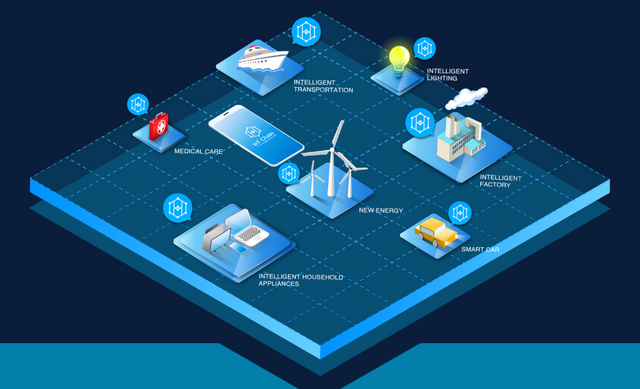
With the Internet of Things, we are seeing a massive amount of different uses for the technology, and we have seen a huge increase in the different use cases for IoT all around the world, even in our every day life.
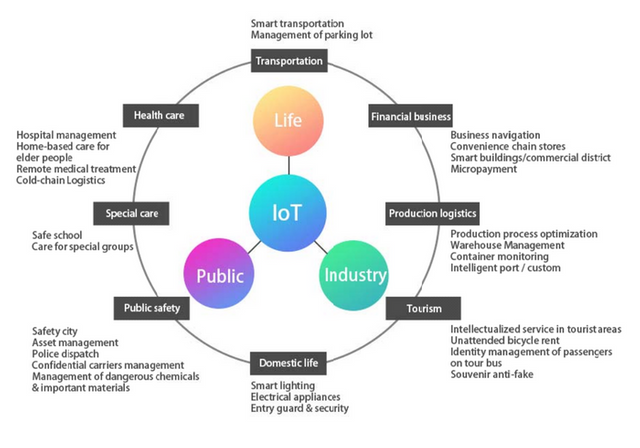
Now that you can see some of the different ways that blockchain can benefit the Internet of Things, how does it actually do so?
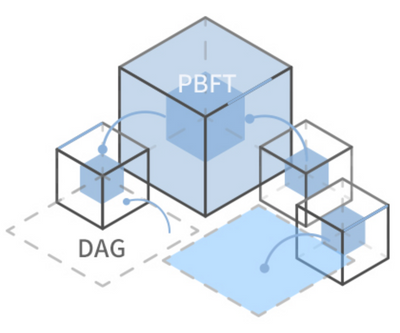
The IoT Chain network brings four solutions to the blockchain:
- PBFT
- DAG
- SPV
- Big Data Analysis
- CPS
PBFT
PBFT stands for "Practical Byzantine Fault Tolerance", which is a state machine replication algorithm
based on the consistency of message passing. This consensus protocol helps to improve the main chain's performance because of its decentralized manner.
DAG
DAG stands for "Directed Acyclic Graph", which is what some people are considering Blockchain 3.0. By implementing this technology, it allows for faster transaction speeds, while making the network resistant to quantum attacks. On the DAG network, in order to start a transaction, a node is required to do a simple proof of work, which actually makes ITC into both a distributed PoW, as well as a PoS network. One of the most well known projects out there who is developing infrastructure for the Internet of Things is IOTA. One of the technologies that is used by the same platforms is the DAG. You can see some of the contrasts and comparisons:
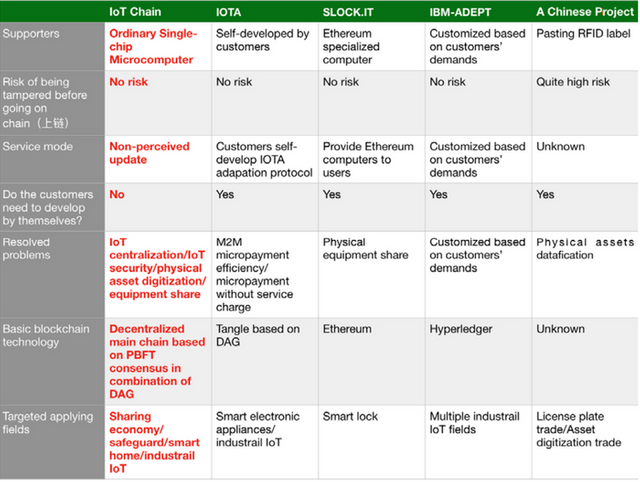
The big boost that IoT Chain uses is the PBFT technology.
SPV
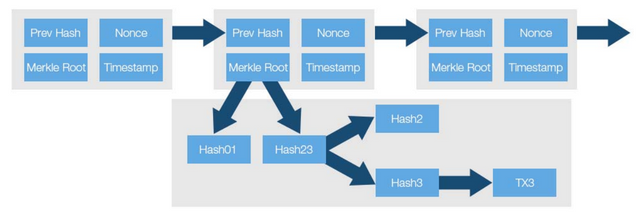
SPV stands for Simple Payment Verification, which "is a technology which can conduct payment verification without maintaining complete blockchain information as long as the blocks’ headers are preserved". The nodes on the network use this technology, which is very similar to that of Bitcoin's, and it helps to fix the data expansion issues previously seen.
Big Data Analysis
This part of IoT Chain's platform is one of the more interesting aspects. This enables companies of any size to get data from users by paying them in ITC tokens in exchange for their data. By creating this decentralized ecosystem, it enables users to have the ability to own their data, and not monopolize organizations, like Facebook or Twitter, who get enormous amounts of revenue from big-data.
CPS
CPS stands for Cyber Physical System, and this technology "is a multi-dimensioned smart technical system based on big data, network and mass computation". Some of the different capabilities of this technology are built into 5 levels, which are connection, conversion, cyber, cognition and configuration.
Roadmap
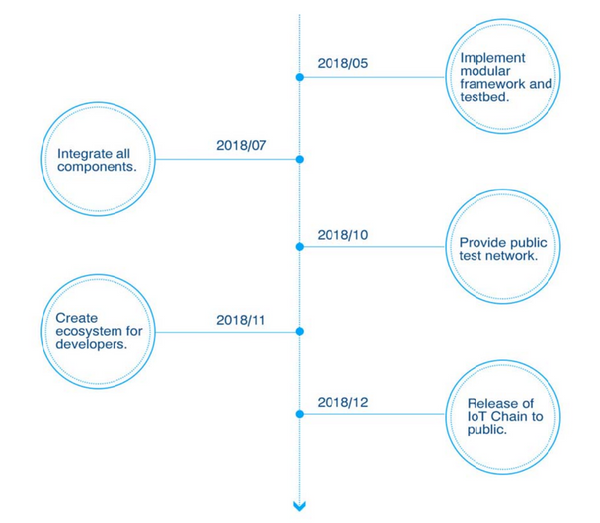
Aside from the milestones that have been made by IoT Chain, it is important to note some of the partnerships that the team has made since it's inception. One of the strategic partnerships has been with Sentinel Chain! A little background about Sentinel Chain is that they are enabling farmers to financial freedom, by using their livestock as collateral to receive financial services. Another recent partnership was with Hero Node. They are building "the next generation decentralized Blockchain fog computing platform". One of the interesting aspects about their platform is they allow for compatibility with all public blockchains, whether it is ETH, QTUM, or any other IPFS network. Having these partnerships will not only help IoT Chain to build a stronger platform and service to its users, but will help the organizations they are affiliated with.
Going forward, I am really excited to see the public test network to be live, and that will be a really good testament to their algorithms that they have developed.
The Token
The IoT Chain network is revolved around their utility token, ITC. The token currently has a circulating supply of 60,203,460 ITC, with a total supply of 100,000,000 ITC. It's usage on the network is pretty unique and will have more value for ownership as the whole Internet of Things continues to grow. As explained earlier in the article, the tokens can be used through SPV, but that isn't the main usage, and even my favorite aspect of its utility. When you connect an IoT device to the ITC network, you are able to have the right to use the device through ITC tokens. So essentially, as more devices are added to the ITC network, the more valuable the data on the network becomes!
IoT Chain Links
Website: https://iotchain.io/
Whitepaper: https://iotchain.io/whitepaper/ITCWHITEPAPER.pdf
Token Info: https://coinmarketcap.com/currencies/iot-chain/
Social Media
Telegram: https://t.me/IoTChain
Facebook: https://www.facebook.com/IoTChain/
Twitter: https://twitter.com/IoT_Chain
Reddit: https://www.reddit.com/r/iotchain/
Github: https://github.com/IoTChainCode
Medium: https://medium.com/iot-chain
Steemit: https://steemit.com/@iot-chain
Other Links
Airdrop Channel: https://t.me/airdrop_shark
Get PAID to sign up for airdrops: https://t.me/airdrop_shark/549
HashFlare Cloud Mining: https://goo.gl/Y4j1aw
Binance Exchange: https://goo.gl/k8wthn
If you appreciate these posts please upvote and follow or share your thoughts in the comments so I can continue to regularly share them with you all!! If your followers might find the post useful a resteem would never hurt ya ;)